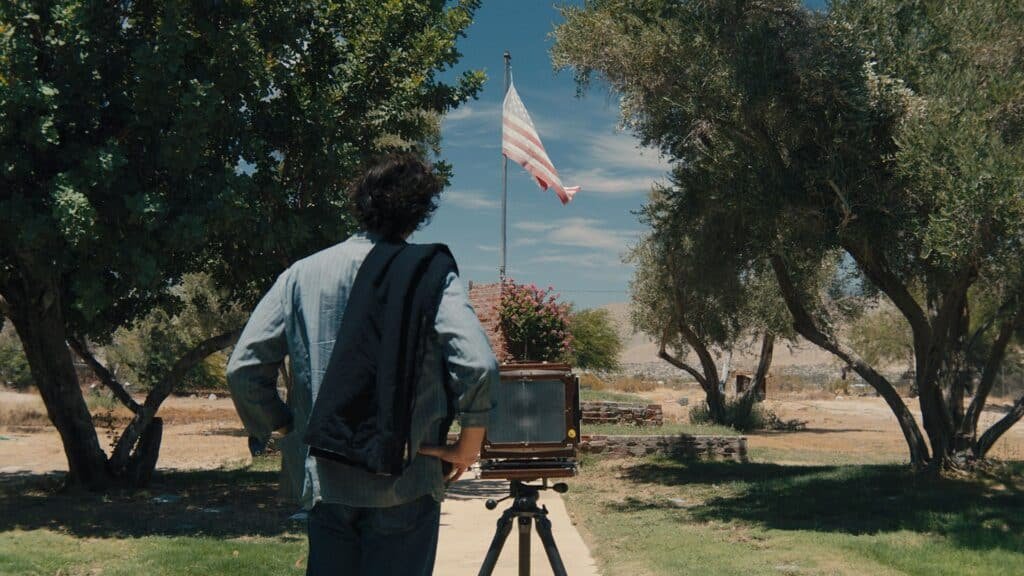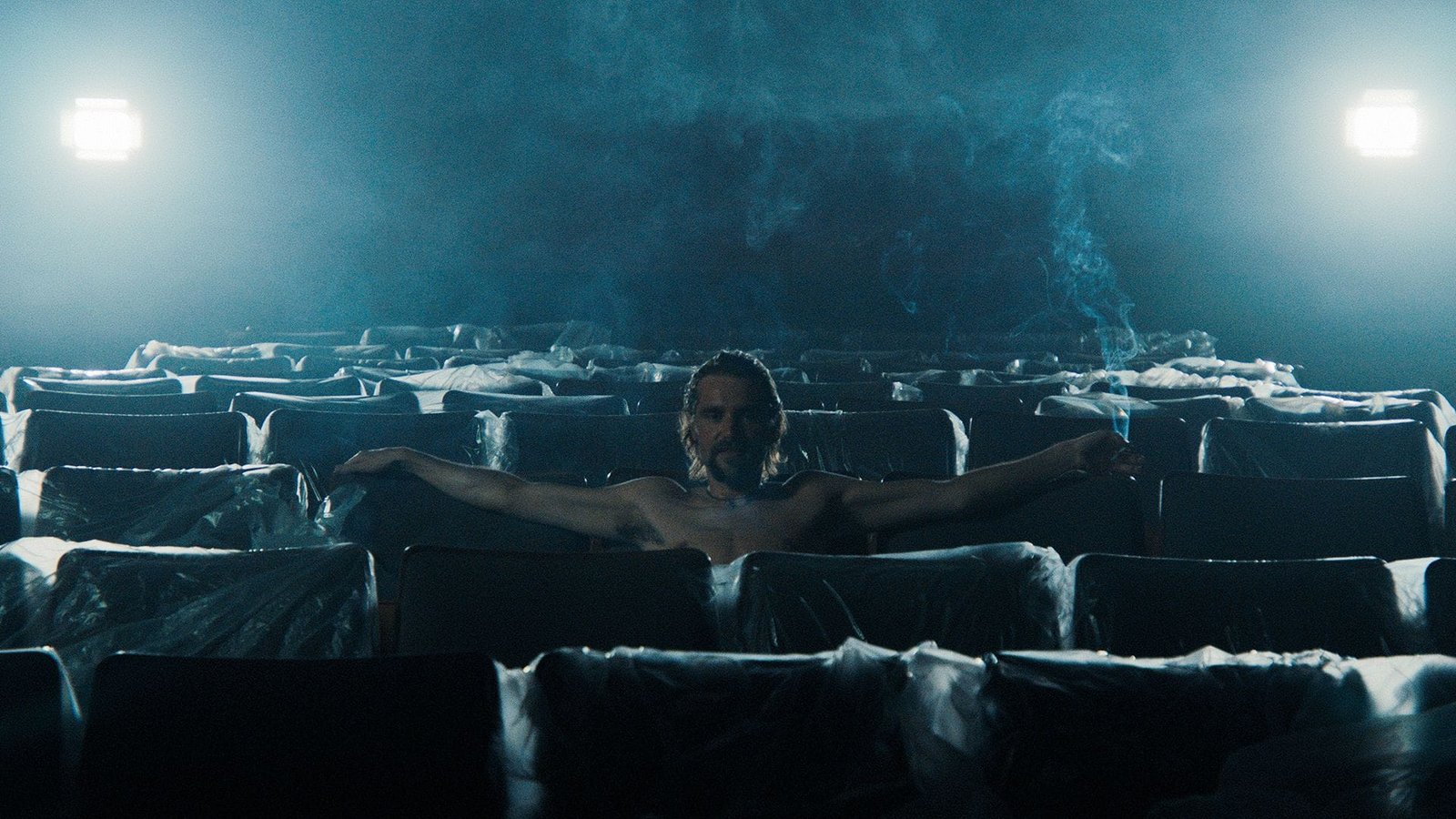
There’s a moment during the first act of A Desert when one character asks another character, an outsider, ‘You like being a tourist?’ It’s this divided America which forms the unstable foundations of the film, looking at what happens to people choosing to be tourists in their own country, spectators in a version of America which normally excludes them. It’s harsh and it’s mesmerising, slow and menacing – and a fantastic first feature from director Joshua Arkman.
We start in a disused cinema with Alex (Kai Lennox) at work on his old professional pursuit, photographing abandoned places. He seems happy alone and the film lingers carefully over his activities, though incidentally revealing that he is vulnerable alone in this place where he has deliberately got himself lost. Real life keeps up its intrusions, too: phone conversations with his wife Sam (Sarah Lind) soon turn to unpaid bills; the neighbours in the motel room next door break out into a fight, and he feels duty-bound to call for help. He can’t quite just be one with his inspiration, as much as making money and getting a fresh break are clearly vital to him.
After the fight next door, one of the occupants, Renny (Zachary Ray Sherman) comes round to apologise. Seeing Alex’s photographic equipment in the room behind him, he asks if he’d photograph his sister Susie and him; bang on cue, we’ve just heard Alex say that he wants to do more portraits than just landscapes. So the pair come in, they get talking – and drinking – and things get messy, with big chunks of missing time for Alex, who wakes up the next morning alone, anxious and hangover, and makes a getaway. But Renny isn’t done with Alex yet and intercepts him again at a nearby gas station, just as Alex is about to hit the road. He seems friendly, though keen to tell Alex all about some of the missing time from the night before, and he tells Alex he has a rare opportunity for him to take some great pictures, if he’ll just drive with him somewhere.
The story you think you’re watching shifts rapidly and brutally here, with a new cast of characters and a mystery which draws others to this strange and, I’m going to say it with apologies, liminal place. Initially, there are some Kalifornia (1993) vibes here in the presentation of a magnetic, but dysfunctional young couple, but A Desert soon detaches itself from any closer comparisons, feeling both more sober (ironically) and in places more abstract; its use of soundscape is something else, and it’s as much an aural experience as a visual one in many key respects. Maybe the stellar presence of The Jesus Lizard vocalist David Yow as an actor here lends the film some kind of special musical flair by proxy, but we shouldn’t take anything away from composer Ty Segall, whose work here is second to none.
Key to everything here is not only the film’s use of a certain kind of Americana, but how we (via Alex, initially) react to it. Sure, the railroad tracks, the motel, the pet cemetery, the abandoned military base – these all conjure a recognisable kind of vision of America largely witnessed from outside: Alex’s photography collection titled ‘The Death of the New West’ carves up the ephemera and detritus of real lives and repackages them, turning them into something for polite consumption – even if he’s not technically getting rich and famous from it, in the simplest sense. Renny is scathing about Alex’s artistic vision: he questions an interest in photographing these ‘beat up places’, and dismisses Alex’s artworld blather about nature ‘reclaiming its topography’. No, Renny insists: they’re just old buildings. Poverty and privilege hover over the film, never written squarely into the script in a way which invites one reading, but they’re there, and they impact on all of the characters. This is a hostile world, province of the ‘demons’ and ‘jackals’ from a passage circled in a motel Bible, but we see just enough of Renny and Susie (Ashley Smith) to find them magnetic and captivating. I wish we’d got to see their portraits, but it was not to be. Despite presenting as powerless and disenfranchised, they govern events – but are rarely present on-screen.
Instead, via a whole lot of analogue technology (actually a good visual symbol here for a world almost left behind but still cherished for its own visual qualities) we get a meticulously constructed piece of world-building, with film and photography both significant framing devices, as well as plot points.
A Desert is a sun-drenched, visually appealing but brutal spin on modern neo-noir, drawing on elements of urban myth, fears of the unknown and fading optimism, and weaving these into a sickly, secretive story which more than rewards the interest. It’s incredibly effective and engaging.
A Desert (2024) will get a limited theatrical run from May 2nd 2025.
